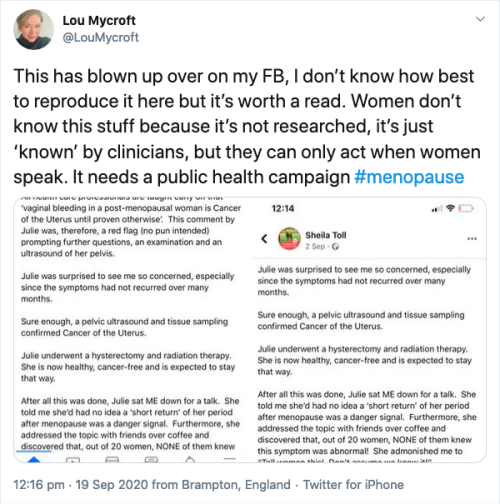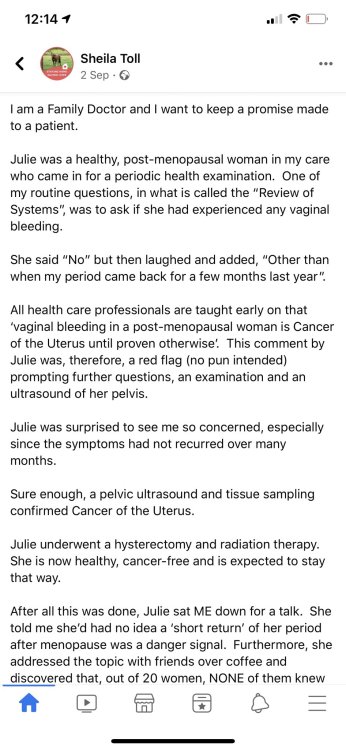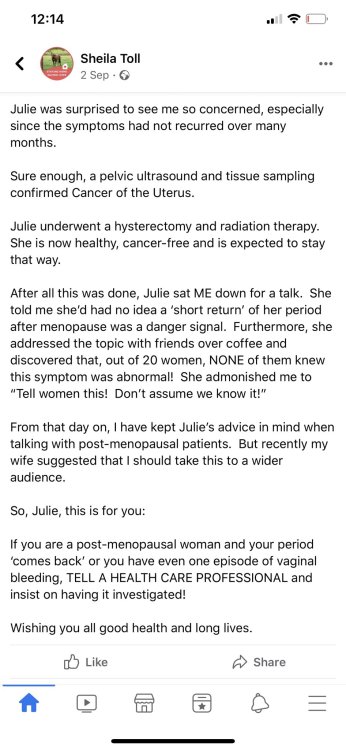darthmelyanna: drst: antiplondon: twitter.com/LouMycroft/status/1307277261444395008 Just to
darthmelyanna: drst: antiplondon: https://twitter.com/LouMycroft/status/1307277261444395008 Just to clarify a couple things: “Post-menopause” means a woman over 45 who has not had a period for over a year and is therefore through menopause. If you are post-menopause and experience any vaginal bleeding, even a small amount, see a doctor and get it checked out. There are other causes of bleeding, including polyps and changes to the uterine lining after menopause due to hormonal changes, which are the most common reasons. BUT cancer is a possible cause, and the earlier cancer is found, the better. Endometrial cancer is extremely dangerous because there is no way to screen for it, so it often advances before it’s found, which, like pancreatic cancer, makes it so deadly. Here at the end of Ovarian Cancer Awareness Month, I remind y’all that this is true of all gynecologic cancers. The symptoms are fairly vague for all of them, and aside from cervical cancer, there’s no reliable screening. But unusual bleeding (or if your period stops when you’re not pregnant or old enough for menopause, which is how mine presented) is something you need to have checked out no matter your age. Especially if it’s in combination with bloating or back/pelvic pain. These can be signs of significant health problems, not just some discomfort you need to push through. The bloating is especially important: A lot of undiagnosed HGSOC (high grade serous ovarian cancer) patients do not bleed at all but end up swelling due to the ascites (accumulation of fluid in the peritoneal cavity). We have had many HGSOC survivors tells us that the reason they started to suspect something was solely due to the fact that they begun to gain weight, regardless of eating and exercising habits. I am sure this is true for all types of vaginal-related cancers.September is Ovarian Cancer Awareness Month and it still doesn’t get the amount of awareness it deserves. HGSOC is lethal, with a 5-year survival rate of only ~45%. Please get checked for any type of vaginal disorder if you suspect even a little that something is off, it can save your life. -- source link
Tumblr Blog : antiplondon.tumblr.com
#womens health#womens health#womenempowerment


